Welcome to the ultimate guide to DeFi wallets, where we’ll take you through everything you need to know about them. In this guide, you’ll learn about different types of DeFi wallets, how to choose the right one, and how to use them.
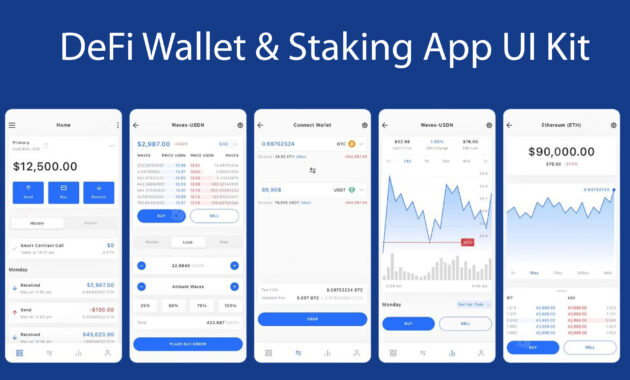
What are DeFi Wallets?
Decentralized finance (DeFi) wallets are non-custodial wallets that allow you to store and manage your cryptocurrency assets. Unlike custodial wallets, where you hand over control of your assets to a third-party, non-custodial wallets give you complete control over your funds.
DeFi wallets are interoperable across all major DeFi protocols and, within limits, across blockchains, too. They allow you to participate in a range of DeFi markets, such as non-fungible token (NFT) art and exotic derivatives.
Types of DeFi Wallets
There are two types of non-custodial cryptocurrency wallets: hardware wallets and software wallets.
Hardware wallets are physical devices that look like USB sticks. They are created by companies such as Ledger and Trezor and are used to hold your funds offline (known as “cold storage”).
Software wallets, on the other hand, are online wallets that you access through your web browser or your phone. They’re usually free and are the most common way to interface with decentralized finance protocols such as decentralized exchanges, lending protocols, and yield farms.
How to Choose a DeFi Wallet
When choosing a DeFi wallet, the first thing you need to consider is the blockchain on which you plan to use it. For instance, MetaMask, one of the most popular Web 3 wallets, doesn’t natively support the Solana blockchain.
You’ll have to use a wallet like Solflare, Sollet, or Phantom to interact with Solana decentralized applications (dapps). Some blockchain applications require their own wallet, such as the play-to-earn crypto game Axie Infinity, which requires you to use Ronin Wallet.
Beyond blockchains, wallets come with different features. Some wallets are better at supporting certain assets. MetaMask, for instance, doesn’t visualize the NFTs you hold in your wallet. Others, like Rainbow Wallet, allow you to see the NFTs you hold within your account.
Some DeFi wallets are integrated with decentralized finance applications, allowing you to interact with DeFi protocols or perform trades without having to leave the wallet. For instance, MetaMask allows you to swap tokens within its app, and SolFlare allows you to manage staking accounts.
Other wallets, like MyCrypto and MyEtherWallet, natively support hardware wallets, making them a good choice if you want to interact with DeFi protocols using crypto held in cold storage.
Top DeFi Wallets
Here are some of the top DeFi wallets available:
1. MetaMask
MetaMask is a popular Web 3 wallet that allows you to interact with decentralized applications built on Ethereum. It has a simple and intuitive interface and is easy to set up.
MetaMask allows you to swap tokens within its app, making it convenient for users who want to trade cryptocurrencies. It also supports a range of decentralized finance protocols and is integrated with NFT marketplaces like OpenSea.
2. Rainbow Wallet
Rainbow Wallet is a mobile wallet for Ethereum and Binance Smart Chain. It has a sleek and user-friendly interface and allows you to see the NFTs you hold within your account.
Rainbow Wallet is integrated with decentralized finance applications like Aave, Compound, and Uniswap, allowing you to interact with these protocols without leaving the wallet.
3. Argent
Argent is a mobile wallet for Ethereum that prioritizes security. It allows for multi-signature transactions, or transactions that several people have to confirm at the same time.
Argent also lets you nominate “guardians” who can help you recover access to your wallet if you forget your private keys. It allows you to buy funds with debit cards and stake funds at reduced fees – it uses zkSync’s layer 2 network to reduce transaction costs and is integrated with Yearn, Lido, and Gro.
4. Coinbase Wallet
Coinbase Wallet is a non-custodial wallet produced by the custodial exchange. It’s integrated with lending protocol Compound and decentralized derivatives exchange dYdX.
Coinbase Wallet is among the most user-friendly of crypto wallets and allows you to store a range of cryptocurrencies. It also supports NFTs and allows you to interact with decentralized applications built on Ethereum.
5. Gnosis Safe
Gnosis Safe is a non-custodial wallet that allows for multi-signature transactions. It also allows you to set up “guardians” who can help you recover access to your wallet if you forget your private keys.
Gnosis Safe supports a range of cryptocurrencies and is integrated with decentralized finance protocols like Aave and Compound.
How to Use a DeFi Wallet
When you have a DeFi wallet installed and funded with crypto, all you have to do to connect to a DeFi protocol is hit “connect wallet.” You’ll usually find the “connect” button in the top right corner of most DeFi protocol landing pages.
Once you’ve connected your wallet, you’ll be able to interact with the DeFi protocol using the funds in your wallet. You’ll have to confirm individual transactions within your wallet and pay for transaction fees using “gas” – or the amount of the native currency for the blockchain you’re using.
Conclusion
DeFi wallets are essential tools for anyone looking to participate in the decentralized finance ecosystem. They allow you to store and manage your cryptocurrency assets and interact with a range of DeFi protocols.
When choosing a DeFi wallet, it’s important to consider the blockchain on which you plan to use it and the features that are important to you. With so many options available, it’s easy to find a wallet that meets your needs.
We hope this guide has been helpful in introducing you to DeFi wallets. If you have any questions or feedback, please feel free to leave a comment below.





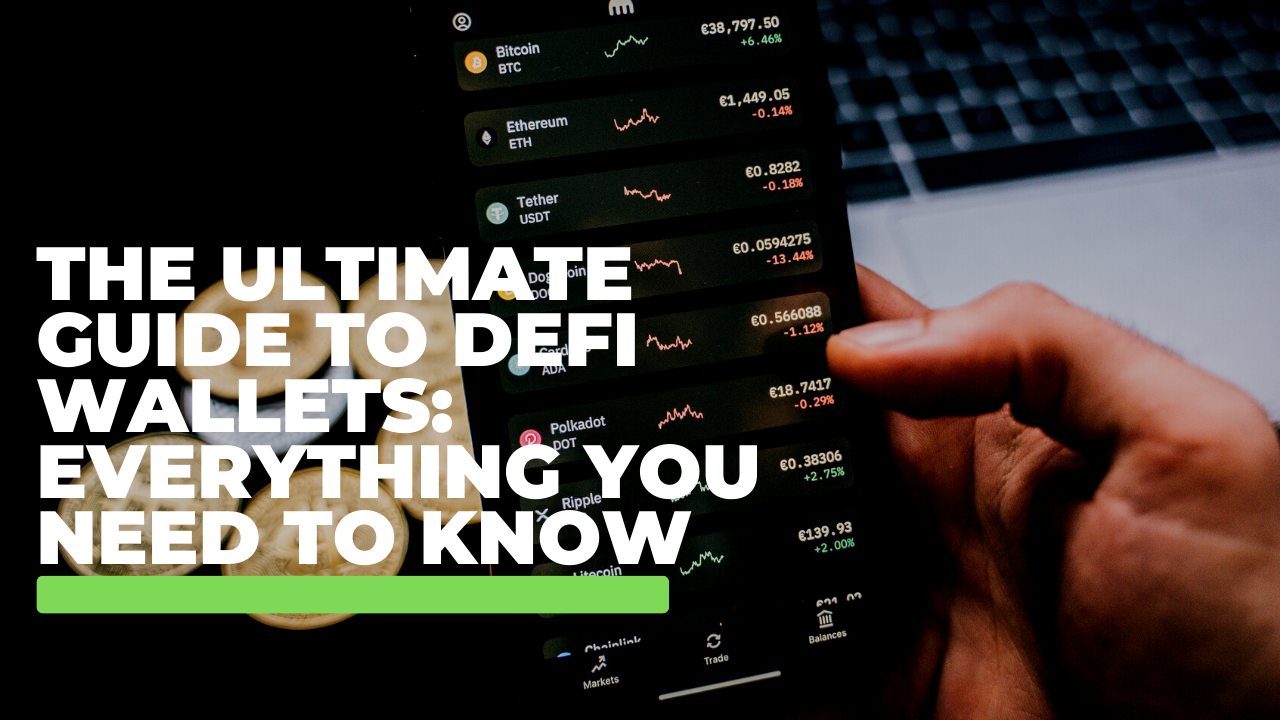
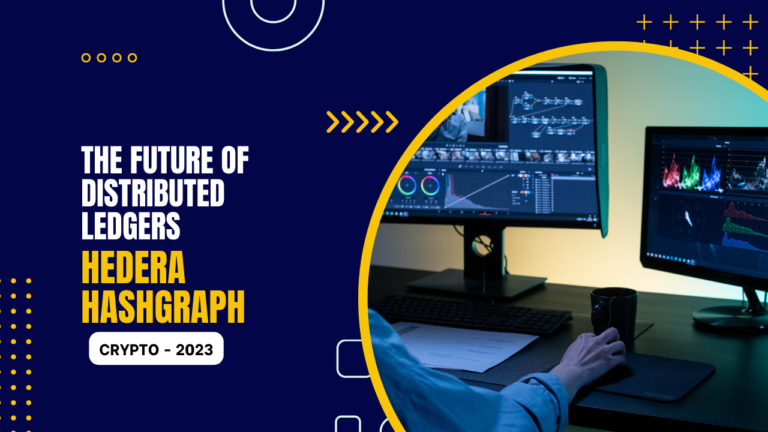
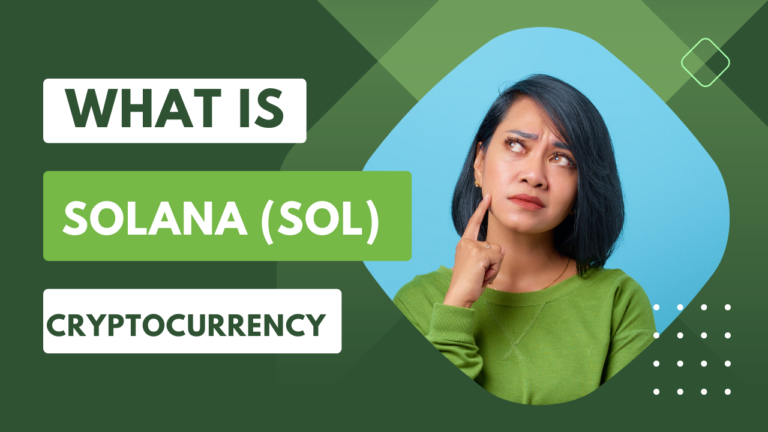
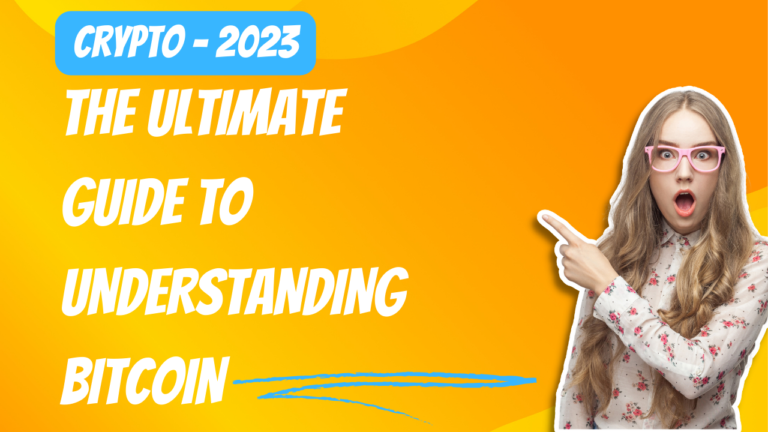


+ There are no comments
Add yours